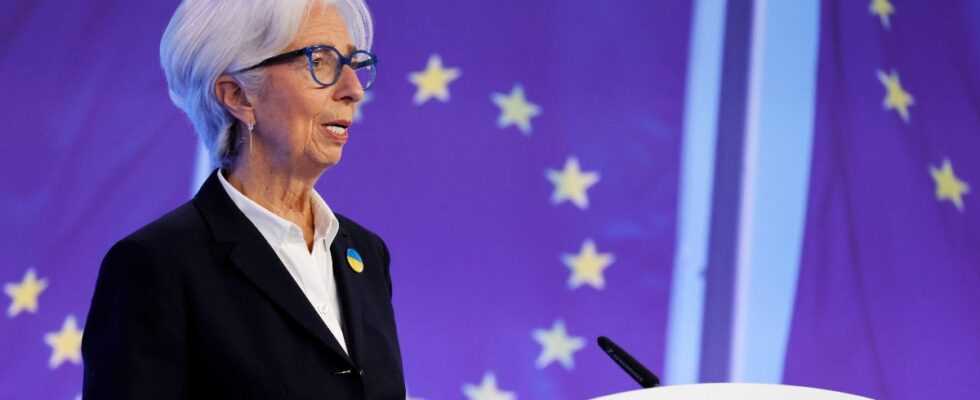In the eyes of the President of the ECB, cryptocurrencies are “certainly used as a means of trying to circumvent the sanctions that have been decided by many countries around the world against Russia and specific actors”.
What if Moscow had found a way to circumvent Western sanctions? While Europe and the United States are stepping up economic measures aimed at weakening the Kremlin, cryptocurrencies could well be a lever used by Russia to reduce the consequences of the avalanche of restrictions that is falling on it. And this is precisely what concerns Christine Lagarde, the President of the European Central Bank (ECB).
During a forum on innovation organized by the Bank for International Settlements, the former boss of the International Monetary Fund (IMF) indeed estimated that the cryptocurrencies obtained in exchange for rubles represented a “threatens” in the actual context. In the eyes of Christine Lagarde, cryptocurrencies, which elude the traditional banking system because of the decentralized character that the blockchain gives them, are “certainly used as a means of trying to circumvent the sanctions that have been decided by many countries around the world against Russia and specific actors”.
The digital rouble, the Kremlin’s weapon to free itself from Western sanctions
For the President of the ECB, there is no doubt: the Russians, whether individuals or companies, “obviously try to convert their rubles into cryptoassets”. To justify her point, the former Minister of the Economy highlighted the very high level of volumes of rubles converted into cryptocurrencies since the start of the war in Ukraine and the many trains of Western sanctions that followed the Russian invasion. .
To see Russians massively turning to cryptocurrencies to escape European and American sanctions is not surprising, however. Last year, Alexander Chokhin, president of the Russian Union of Industrialists and Entrepreneurs lobbying group, suggested using bitcoin and other cryptocurrencies to circumvent Western sanctions. An idea that has come a long way, especially since the start of the Russian invasion of Ukraine.
But more generally, the Kremlin has been developing since 2014 – the year of the annexation of Crimea – an economic strategy intended to free itself as much as possible from the sanctions imposed by the West. In this regard, the digital ruble could be a key to allowing Vladimir Putin to completely cut himself off from international infrastructures. Such a digital currency, issued by the Russian central bank, would indeed be able to do without intermediaries such as Visa or Mastercard. And the fact that the Bank of Russia launched the pilot phase of the digital ruble just before the start of the Russian invasion of Ukraine is probably no coincidence…
